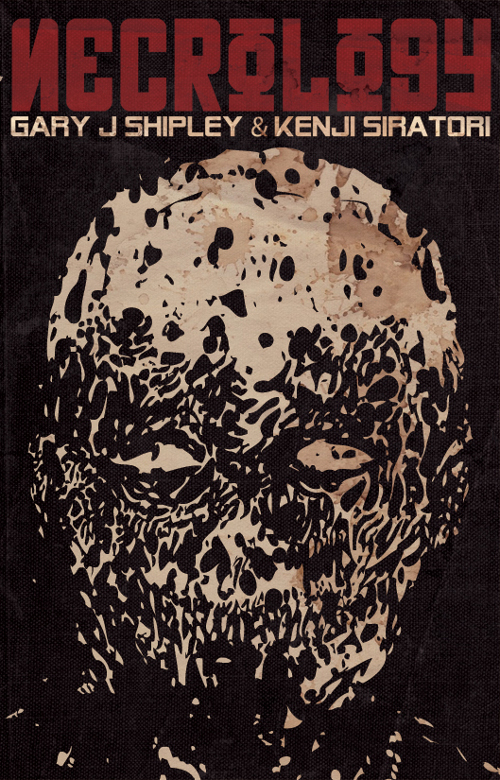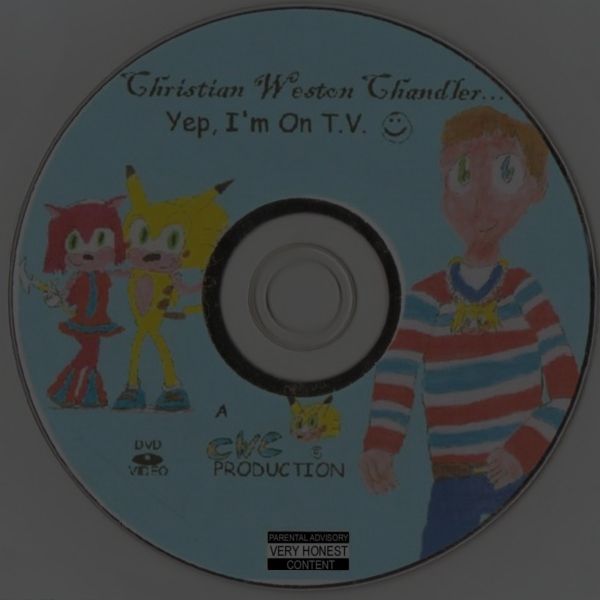 In 2012, a book came out that changed everything. It rose from the dreck like a dark grimoire of power, incipient and wrathful, ready to turn doubters into believers and believers into zealots. A book that shattered your expectations, remade them, and shattered them again. You finished the book a broken and humbled man, with one thought resounding in your skull. “So that’s why my knitted cardigans weren’t up to scratch.”
In 2012, a book came out that changed everything. It rose from the dreck like a dark grimoire of power, incipient and wrathful, ready to turn doubters into believers and believers into zealots. A book that shattered your expectations, remade them, and shattered them again. You finished the book a broken and humbled man, with one thought resounding in your skull. “So that’s why my knitted cardigans weren’t up to scratch.”
This, however, is not a review of Knitting from the Center Out: An Introduction to Revolutionary Knitting. It’s about another book altogether, Necrology.
Half of the book is written by Creation Books darling Kenji Siratori. My first exposure to this overrated fuck was Nonexistence, a clown car pileup of nonsensical words pretending to be an cyberpunk novel. I thought Siratori was a troll then, and I think he’s a troll now. You can search online for samples of his prose, but suffice to say he’s heavily inspired by William S Burroughs and other experimental authors. He seems to have reduced some of his worst excesses, but he is still not a readable writer by any sane standard. I hope to forget about him soon and often.
The other half is by Gary J Shipley, a man I hadn’t heard of. He turned out to be a pleasant surprise, and he actually ends up carrying the book. His prose style is similar to James Havoc (another Burroughs-inspired author), with vividly described and frequently incongruent imagery designed to stick in your imagination. You don’t need to do much except get carried along by the slipstream of his writing. To mangle Robert Christgau, you don’t know what he’s doing, but you can definitely see that he’s doing it.
So what’s this book about? Siratori’s portions of the book are lexical white noise, but Shipley’s seems to articulate a theme of life being another name for death. Lots of his metaphors speak to that: babies dropping dead out of wombs, middle age being equated to decomposition, etc. Portions of the book resemble a narrative (although you’d be an idiot to expect a story in this sort of book), with some dystopian, transhumanistic themes being riffed on. Necrology is all over the place and doesn’t fit well into a genre category.
To muddle the book’s purpose still more, there’s a third author. Reza Negarestani contributes an afterword, in which we learn of a barbaric Etruscan punishment (victim sewed body to body and mouth to mouth with a corpse), that manages to be disgusting but also thought provoking due to Negarestani’s metaphorical conclusions.
The idea of being sewed to a corpse seems unpleasant, but that’s the reality of believing in a soul…that we are all spirits tied to meat anchors. That when you kiss a woman it’s her soul that reciprocates the gesture, and you are locking lips with a corpse. It’s very interesting, although Negarestani’s writing is academic and not really a model of clarity.
Siratori is a waste of everyone’s time, but the book is worth getting for the Shipley and Negarestani portions. It will certainly be of interest to lots of people who like weird writing, and if it doesn’t impress there’s always the knitting book.
 Once, Marilyn Manson was something. That something may or may not have been good, but it was. He was interesting. He was a spectacle.
Once, Marilyn Manson was something. That something may or may not have been good, but it was. He was interesting. He was a spectacle.
“Was” is past tense.
Has anyone even listened to this album right the way through? Can anybody muster even the slightest interest in any of the songs? Does anybody know or care when one track ends and the next begins?
This album is so featureless and uneventful that sometimes I forget that it exists. I start absently wondering whether there will be a new Manson album soon, and then I remember that one did, in fact, come out, and this is it. Then I listen to part of a song or so on Youtube. I never finish it. Marilyn Manson’s music from the past ten years has the positive trait of making things in your environment seem unnervingly interesting, such as a sleeping cat, a bit of fluff on the floor, etc.
Born Villain is the musical equivalent of pushing a broken shopping trolley. It is slow, tedious, and unrewarding. Where are we going here, Brian? “Hey, Cruel World” is an effort at bringing back the gritty hate punk of “Irresponsible Hate Anthem”, but it sounds laboured and lethargic, like someone set the metronome thirty clicks too slow. “Slo-Mo-Tion” is offensively worthless dribble with no reason to exist. Nice drumming, too. Sounds like a GarageBand drum loop.
“The Gardener” has Big Bri spruiking his stupid beat poetry to the backdrop of bass guitar and more drumming c/o GarageBand. Calling this boring is an insult to honest God-fearing boring things everywhere. There’s no energy or inspiration on either side of the speakers. Brian just doesn’t care. You can almost see the studio execs holding up a “YOU CAN STOP PLAYING NOW” sign.
It’s Twiggy’s second album back in the band – remarkable, as virtually nobody lasts for two consecutive albums in Marilyn Manson. Chris Vrenna is credited for about a million things. I don’t know much about that guy, except that he made some remixes of Rob Zombie songs back in the day. Otherwise it’s Brian’s show. I assume his midlife crisis is in full swing by now, with publicity quotes like “Sometimes you don’t know how the fuck to be yourself, because you’re too confused by the circumstances you’re in.” Don’t hope that the old Manson magic is coming back any time soon. Manson himself has forgotten it.
The desperation becomes very tangible on track 14, Carly Simon’s “You’re So Vain,” a guileless attempt at creating a crossover hit like “Sweet Things (Are Made of This)”. This was my favourite song as a kid and he makes into a non-event just like the others. Johnny Depp is on the song. I shouldn’t have mentioned him because now I’m thinking about The Onion’s Johnny Depp Now Completely Made Of Scarves And Bracelets instead of Born Villain.
It is not as terrible as Eat Me, Drink Me. That’s another tick in the boredom column, as it fails even to be entertainingly bad. I won’t call Born Villain music because that might trigger Pavlovian reactions towards much better things. I won’t call it “noise” because even noise is sometimes more interesting than this. Maybe it should be classified as an “alternative to silence”.
“Hey, have you heard Marilyn Manson’s new alternative to silence? I haven’t, either. No-one has.”
 This DVD contains over four hours of pure autism, and is essential viewing for all Chris-chan fans (just so long as you’re not a JERK).
This DVD contains over four hours of pure autism, and is essential viewing for all Chris-chan fans (just so long as you’re not a JERK).
Although it was distributed in 2007 among a few select friends and family members, Chris intended this DVD to be mass-released at some point. He mentions in his Future Message that he thought the DVD would eventually be shown in schools. You see, Chris believed he is a special person, one worthy of great fame and recognition…and, as history has shown, he was absolutely correct.
The oldest piece of film is from 1994, when Chris was 12, and documents him winning some local sweepstakes thing. This video can be considered definitive proof that Chris is not a joke or a character. He talks to the camera like a shell-shocked PTSD victim, and the reporter mentions that he has high functioning autism.
The next video is from 1998, with Chris reading a poem in high school. “My peer relationship is low, and my loneliness is off the scale.” He soon wanders off topic, and starts talking about school life in general. The video ends with Chris raging and shrieking like demon-possessed Regan because he got bad marks in English.
Then we’ve got a pile of tedious videos of Chris playing videogames. There’s a news segment from 1999, when Pokemon was huge, that shows Chris playing the trading card game with kids half his age and generally taking it all rather seriously.
Then there’s Chris singing his cover of The Backstreet Boys’ “I Want It That Way”, with lyrics about how he’s searching for a girlfriend.
And so on, and so forth…it’s endearing and rather moving to see Chris’s mind at work. I wonder what it must feel like to have such a world-view that 5 minute clips of you playing videogames seem like professional DVD-worthy content. Honestly, it would feel awesome.
This guy’s feedback mechanisms are broken in the best way possible. Everything he does is perfect. Every comic he draws is a masterpiece. Every game he beats gives him the rush normal people get from climbing Everest. Being Chris is like being a rat, pulling a lever, and having six pounds of Gorgonzola fall on your head.
The longest part of the video is a two hour slideshow of Chris’s art, comics, and photography. The soundtrack is provided by Chris’s “radio station” KCWC, which means I hope you like videogame OSTs and 90s pop songs. Apparently Chris has a master copy of this DVD that goes for six hours.
Chris is a legend in his own mind. And mine, too.
 In 2012, a book came out that changed everything. It rose from the dreck like a dark grimoire of power, incipient and wrathful, ready to turn doubters into believers and believers into zealots. A book that shattered your expectations, remade them, and shattered them again. You finished the book a broken and humbled man, with one thought resounding in your skull. “So that’s why my knitted cardigans weren’t up to scratch.”
In 2012, a book came out that changed everything. It rose from the dreck like a dark grimoire of power, incipient and wrathful, ready to turn doubters into believers and believers into zealots. A book that shattered your expectations, remade them, and shattered them again. You finished the book a broken and humbled man, with one thought resounding in your skull. “So that’s why my knitted cardigans weren’t up to scratch.”

